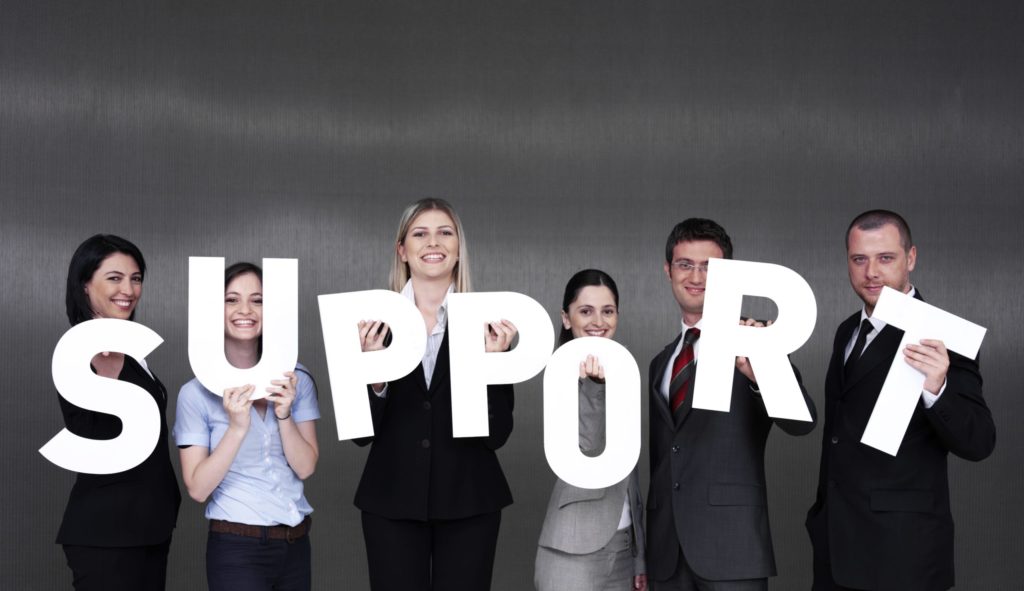So you’re trying out the Alcoholics Anonymous (AA) route to sobriety. That’s wonderful, but if might feel a little overwhelming. It may seem like you’re learning a whole new language and culture—so many slogans, acronyms, books to read, meetings to attend, 12 steps to learn and a sponsor to guide you through it all. What’s a 90 in 90? Do I really need to buy a Big Book? Why are there so many different kinds of meetings? For many people in early recovery, diving into the AA way feels amazing: a group of people who seem to know you inside and out even though you are strangers! And these people care about you and your sobriety despite your shortcomings. Like a family only better, your AA acquaintances can call you on your nonsense because they’ve been there and they know how you think. They’ll help you get familiar with all the finer points of AA language and culture, and of all the contacts you’ll make, none will be more important than your sponsor. A sponsor is your point person—the man or woman you are linked with as a guide and mentor to help you through the other 23 hours in a day when you aren’t in a meeting. Women are typically paired with female sponsors and men with males to help keep the focus on sobriety, but that isn’t a hard and fast rule. A good sponsor will likely have solid time under his or her belt living sober and working the program before taking on sponsees, and many limit the number of people they sponsor to ensure that they can provide enough time and energy to each one. For many people new to recovery and new to the 12-step program, the idea of leaning on a sponsor may be a tough sell. That first step—admitting powerlessness over the addiction—was hard enough, but to then willingly become dependent upon another person (another alcoholic, no less!) can be really hard for some people to accept. Many alcoholics and addicts have accomplished much in their lives, despite their addiction. Many hard-working people develop addictions and also create successful businesses or careers, or create incredible artwork. Many people struggling with addiction have succeeded despite extremely difficult odds, often doing so all by themselves and via their own efforts. Even if this isn’t totally true for you, you might feel like you need to be independent and self sufficient for your sobriety to really take hold. Relying upon someone else to help you get and stay sober often feels scary and unsafe to people in early recovery. Here are some tips and ideas about using your sponsor that might help you feel more comfortable about allowing him or her to help you:
- Be honest and open with your sponsor. It’s safe to assume that he or she has heard it all before, and probably said many of the things you’re trying to decide whether you should say. Say what you feel. Share what’s going on for you, even if it is not in tune with what you think you “should” think or feel. Have doubts? Voice them. Thinking about picking up a drink? Say so. Feeling like you don’t want to go to a meeting? Tell your sponsor. Don’t censor or edit what you say; don’t worry about whether it’s wrong or stupid or going to have consequences. Just trust the process and speak your mind.
- You don’t have to buy into whatever your sponsor is suggesting; you just need to give it a try. Your sponsor might suggest doing things that you really don’t want to do, but at some level, if you’re really honest with yourself, what you want to do is drink. Since that’s off the table, finding a way to enjoy not drinking is something your sponsor knows more about than you do, so giving his or her suggestions a try is your best bet to ultimately feeling a little better about not drinking.
- Let’s say you do open up to your sponsor and develop a good working relationship and then your sponsor goes away, on a business trip or has a death in the family, or perhaps even relapses. What then? For many people in early recovery, underneath all the resistance to making the commitment to using a sponsor is the fear that once you do really lean on someone, he or she will disappear. Feeling vulnerable and fearing abandonment is normal, especially in early recovery. Acknowledge these feelings and talk about them with your sponsor. If you’ve suffered significant losses in your life, your sponsor might suggest you do some psychotherapy to work through your grief.

